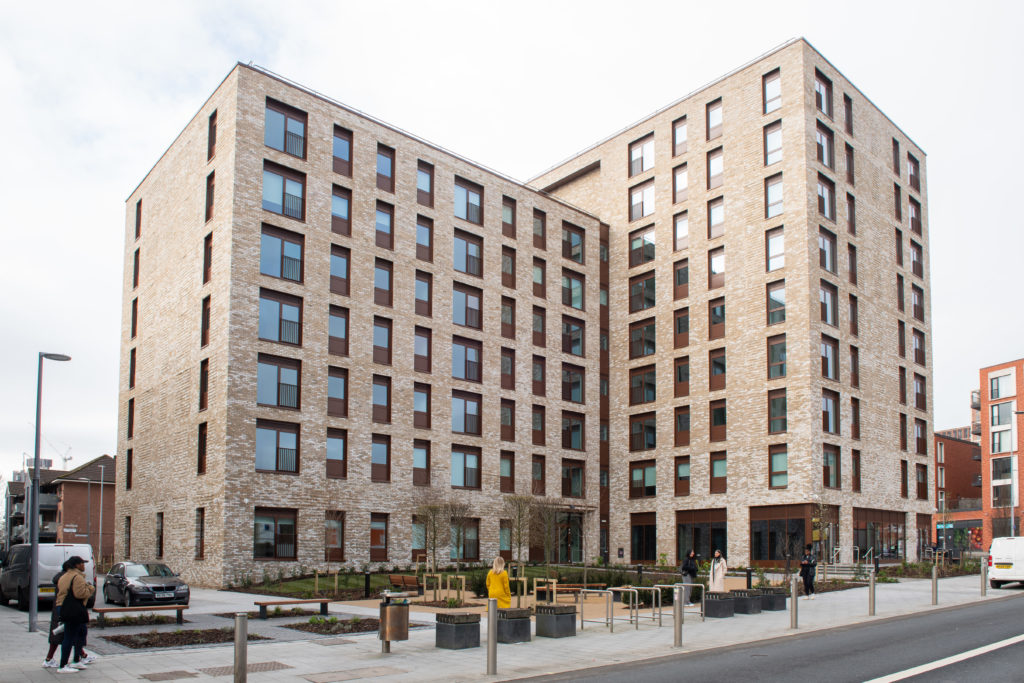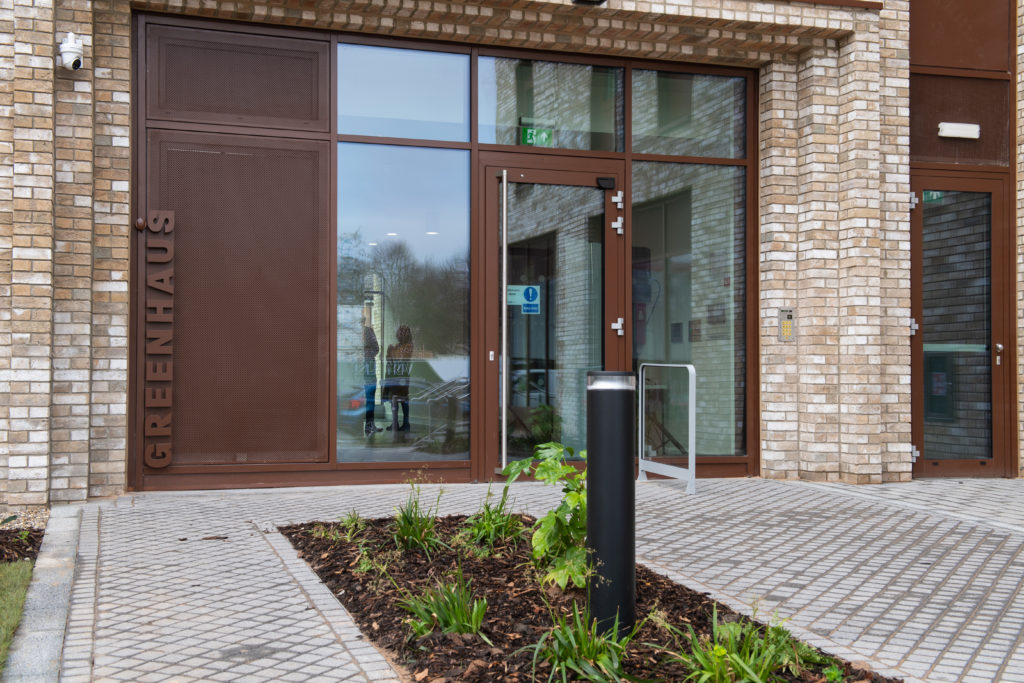Putting people – and the environment – at the heart of placemaking
15.04.24 4 min read

Placemaking, and responsible regeneration, is about creating spaces and places that future generations can thrive in and benefit from.
In equal measure, therefore, it must focus both on the here and now through delivery of immediate gains as well as addressing the bigger, longer-term picture when it comes to societal, community, and environmental need – these philosophies are central to everything we deliver.
And, what really sets us apart is our desire to challenge the status quo, push boundaries, and create places that not only transform lives but have a wider social impact too.
Nowhere is this more evident than at Greenhaus on Chapel Street in Salford, a collection of 96 highly-sustainable, affordable homes that have been delivered by ECF – a joint venture between three of the UK’s leading regeneration and investment organisations, Homes England, Legal & General, and Muse – alongside Salford housing association, Salix Homes, and supported by Salford City Council.
Built to a Passivhaus Classic certified standard, the leading low-energy design standard, Greenhaus is the largest development of its kind in the North West of England, and comprises a range of features that contribute towards reduced running costs whilst also enabling a healthier living environment for residents.

Greenhaus
Addressing the cost-of-living crisis
Working on developments right across the UK, we know there is a shortage of affordable, high specification living spaces in the housing sector. We also know that the cost-of-living crisis continues to burden people, with issues such as fuel poverty still dominating the news agenda.
Greenhaus was created to tackle these problems head-on, with its health-focused design features bringing significant benefits to those living there.
Comprising homes for social rent, affordable rent, and others available through the Rent to Buy scheme, the development’s features – such as triple glazing, the latest in insulation technology, heat recovery units, and air source heat pumps – work in harmony to reduce operating costs.
Consequently, Greenhaus will reduce heating and hot water demand by a proven 68%, typically lowering the costs for an average two bed home from £95/pcm to below £40/pcm.
Operational energy use will be between 70-90% less than traditional housing too, meaning that residents will see a decrease in the overall cost of energy bills while also reducing their carbon footprint.
Tackling health inequality
The positive impacts of Greenhaus aren’t just financial either.
Studies have identified that Salford has one of the highest mortality rates from lung disease in England with 155 deaths per 100,000 people.
Through its exceptional air-tightness, the development’s Passivhaus design reduces the risk of airborne infections and is constructed to ensure homes are free from condensation, damp, and mould.
The improved air quality Greenhaus provides – with a constant dilution of CO2 and air pollutants – also aims to limit the effects of respiratory illnesses and allergies.
“The completion of Greenhaus in Salford, delivered by the English Cities Fund, is a significant achievement. The creation of new affordable, sustainable, and high specification homes contributes to a wider ambition to create healthy living environments which serve the needs and desires of local communities.” Danielle Gillespie, Director of Regeneration, Partnerships and Major Projects, Homes England.
It would have been easy for ECF to create a traditional housing development, but with its stringent focus on the needs and wellbeing of residents, Greenhaus benefits those who need it most.
It is incumbent on developers to follow these principles and to deliver transformational places, even if it requires more effort, thought, planning and, crucially, collaboration.

Greenhaus
Fit-for-the-future
But of course, and as with all of the places we create at Muse, Greenhaus isn’t purely about the here and now; it’s been created to stand the test of time and meet the country’s sustainability needs as the nation strives to meet ambitious climate targets.
Importantly, as a result of being built in line with Passivhaus principles, Greenhaus will not require retrofitting in the future.
With the average cost to retrofit a home currently sitting at just under £70,000 and only likely to increase, the development safeguards against expensive upgrades further down the line which would impact both residents and the local authority.
“With the rising cost of living, a shortage in the supply of affordable and social housing, and a need to address the challenges posed by the climate crisis, Greenhaus demonstrates what can be achieved through effective partnership working, and a shared desire to create cleaner, greener, and healthier homes that are fit for the future and won’t need retrofitting.” Sue Sutton, Chief Executive at Salix Homes
Taking our learnings forward
Alongside Greenhaus, we are also working to deliver a second Passivhaus project on Peru Street in Salford – another 100 homes which are 100% affordable and 100% certified. By replicating the Passivhaus principles applied to Greenhaus, we’re able to continue building homes that enhance health and support those who may be struggling financially.
In this part of Greater Manchester, we’re demonstrating that affordable living – underpinned by sustainable and eco-friendly foundations – is achievable.
As an industry, for social, economic, and environmental reasons both now and in the future, we must strive to deliver more of these places so communities and the people who live in them can flourish.